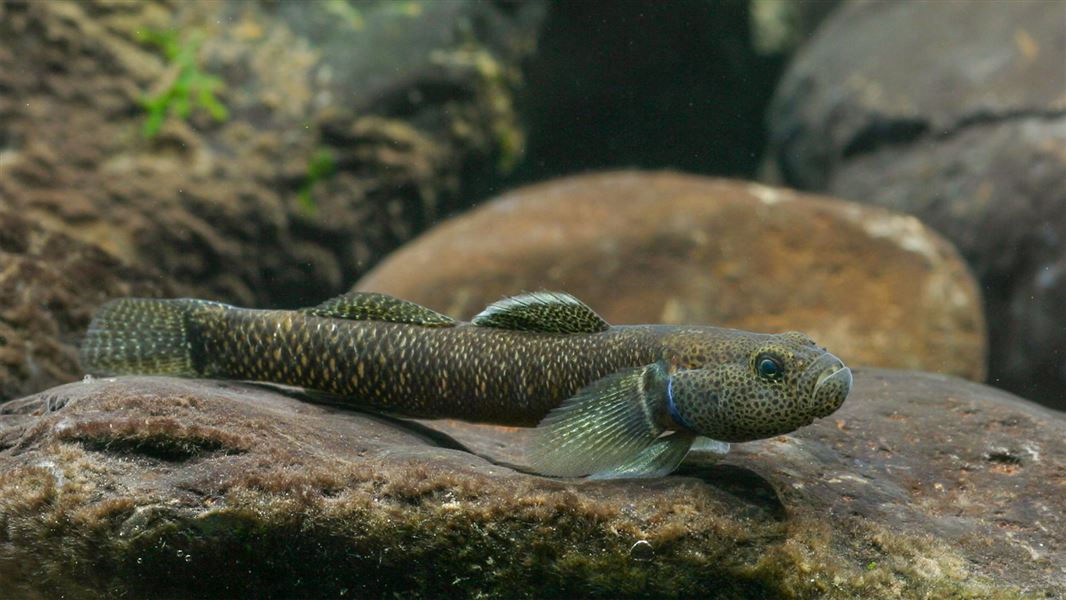There are seven species of bullies in New Zealand. They are found in a range of habitats including streams, rivers and lakes.
Bullies are well camouflaged against sand and rocks, but can be seen darting in the shallows during the day.
Bluegill bully
The bluegill bully usually grows to about 5 cm long. It has an 'upturned' mouth which it uses to pick its food (aquatic insects) from beneath rocks. This fish prefers swiftly flowing gravelly streams, just like the torrentfish.
Get more information on bluegill bully – NIWA website
Common bully
Even though they are well camouflaged against sand and rocks, common bully are often seen darting in the shallows during the day.
The male guards the nest and when the eggs hatch, the larvae go to sea to return to freshwater after a few months. However some populations become landlocked and complete their life cycle without the sea phase.
Get more information on common bully – NIWA website
Giant bully
This dark-coloured fish prefers lowland waterways especially estuaries and is almost always found beneath cover, only to emerge at night to feed.
It can grow over 15 cm long. It is presumed that giant bullies have a marine phase in their life cycle, but this is not known for sure.
Get more information on giant bully – NIWA website
Redfin bully
Redfins are distinguished from other bullies by having diagonal cheek stripes and grow up to 12 cm long. Male redfin bullies are our most colourful native fish, with bright orange-red fins.
Like other bully species, the male guards the nest before the larvae get washed out to sea, and migrate back to freshwater as small juveniles.
Get more information on redfin bully – NIWA website
Upland bully
The upland bully is stockily built with a large head They grow to about 8 cm long and can be found in a variety of habitats.
The upland bully does not undertake a migration.
Get more information on upland bully – NIWA website
Cran's bully
Cran's bully has a large head and eyes with a blunt snout. Both males and females are sandy-brown to brownish-olive. The males have some bright pinkish-orange colouration on their fins.
Like the upland bully it does not undertake a migration. Cran's bully is often confused with the common bully.
Get more information on cran's bully – NIWA website
Tarndale bully
The Tarndale bully is slender and bullet shaped. Males and females are olive brown. They are only known to occur in several small lakes in Marlborough where they live around the margins.
Get more information on tarndale bully – NIWA website
